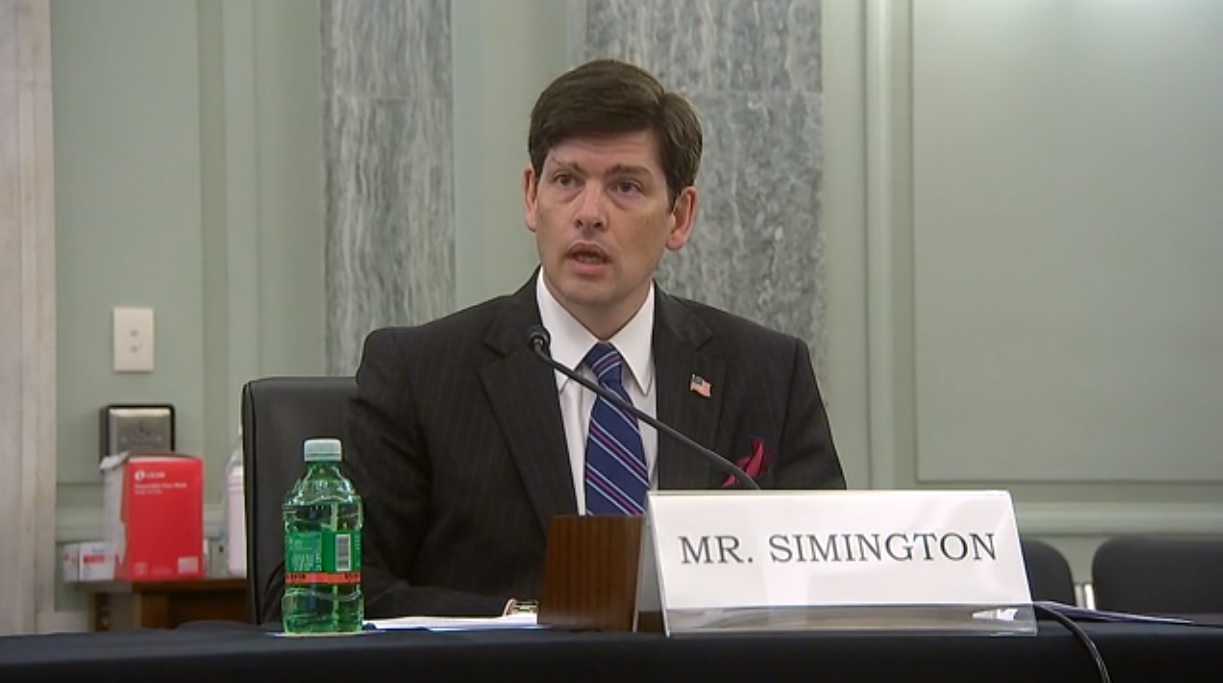FCC's Simington Has Dynamic View of Spectrum Sharing
But signals it is complex issue for which AI is likely no magic bullet

The smarter way to stay on top of the multichannel video marketplace. Sign up below.
You are now subscribed
Your newsletter sign-up was successful
Dynamic spectrum sharing got a boost from FCC Commissioner Nathan Simington at a speech to the Silicon Flatirons conference in Boulder, Colorado, though he painted a complex portrait of such a future.
"Any static system is going to exclude almost all uses, and whenever it's not in use, the spectrum is fallow," Simington told his audience, with a big nod for some of his speech topic to a report, "Taking Stock of Spectrum Sharing" by John Leibovitz and Ruth Milkman. "An automatic sharing regime proposes almost the opposite: to enable diverse uses by permitting time and frequencies to be used by multiple services in a coordinated fashion."
The commissioner said the current spectrum congestion is a good problem to have since it means it is "desirable and heavily used."
Also Read: DOD Agrees to Share Midband Spectrum
Simington acknowledged that a static spectrum allocation system "solves coordination problems from its inception" but at the price of rigidity, while a dynamic system tackles coordination problems on the fly, but "at the cost of operating overhead and limiting the functionality of each shared service."
And while he conceded that AI and machine learning could improve dynamic spectrum sharing, he saw some clouds on that horizon.
"Today, with AlphaZero able to learn chess from the elementary to the transhuman level in just a few days of playing against itself, I'd be cautious betting against learning machines," he said. "But the rules of Western chess have been fixed for hundreds of years, and the rules of spectrum are a little harder to define."
The smarter way to stay on top of the multichannel video marketplace. Sign up below.
He said live spectrum sharing using AI/ML would require an ocean of data to train and test such a system, "and it isn’t clear to me where that data will come from."
Then there would be the need for "data scientists and domain experts" to define spectrum efficiency, which he said was "a lot easier when such decisioning is done within an organization, or within an industry where there is broad agreement about the subject, not the spectrum sector with its bristling complexity and frequent disagreements."
Simington said there are regulatory issues that may not be solvable by sharing alone, including the spectrum equivalent of Oliver Wendell Holmes, Jr.'s quote that "the freedom to swing my arm ends where the other fellow's nose begins." Simington said there are emission interference issues with parties that "may be acting wholly in accordance with their licenses and may have no way of preventing the harms without voluntarily abstaining from fully exercising their rights."
The commissioner also said there are issues with guard band reduction--guard bands are spectrum buffers between users, like that between wireless and broadcast users in that band. "[S]o, as regulators, we have to pick our battles."
One of the issues related to dynamic sharing is receiver standards. Simington addressed that in a Q&A following his speech. He told Multichannel News that the issue is that transmitters may not be able to "reasonably prevent some types of foreseeable interference as spectrum use densifies." But he also told Multichannel News that it may well be that industry stakeholders, standards bodies and others "might resolve this long before the FCC develops the appetite to take them on."
Contributing editor John Eggerton has been an editor and/or writer on media regulation, legislation and policy for over four decades, including covering the FCC, FTC, Congress, the major media trade associations, and the federal courts. In addition to Multichannel News and Broadcasting + Cable, his work has appeared in Radio World, TV Technology, TV Fax, This Week in Consumer Electronics, Variety and the Encyclopedia Britannica.

